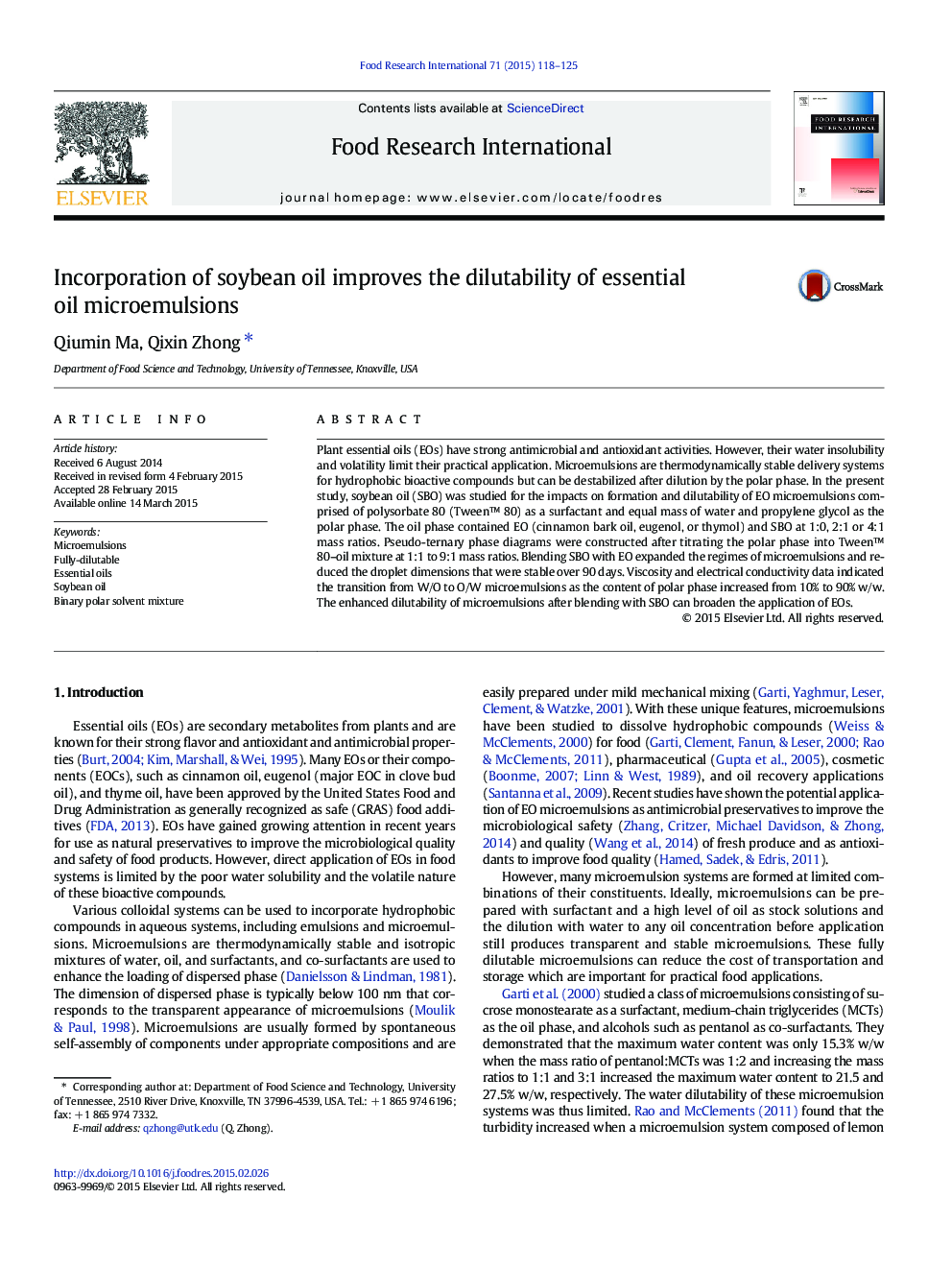| Article ID | Journal | Published Year | Pages | File Type |
|---|---|---|---|---|
| 4561546 | Food Research International | 2015 | 8 Pages |
•Fully-dilutable microemulsions of plant essential oils were prepared.•Incorporating soybean oil enhanced the dilutability of the microemulsions.•Incorporation of soybean oil decreased particle dimensions in microemulsions.•Particle dimensions were stable during storage for 90 days.•Microemulsions transited from W/O to O/W during dilution by the polar phase.
Plant essential oils (EOs) have strong antimicrobial and antioxidant activities. However, their water insolubility and volatility limit their practical application. Microemulsions are thermodynamically stable delivery systems for hydrophobic bioactive compounds but can be destabilized after dilution by the polar phase. In the present study, soybean oil (SBO) was studied for the impacts on formation and dilutability of EO microemulsions comprised of polysorbate 80 (Tween™ 80) as a surfactant and equal mass of water and propylene glycol as the polar phase. The oil phase contained EO (cinnamon bark oil, eugenol, or thymol) and SBO at 1:0, 2:1 or 4:1 mass ratios. Pseudo-ternary phase diagrams were constructed after titrating the polar phase into Tween™ 80–oil mixture at 1:1 to 9:1 mass ratios. Blending SBO with EO expanded the regimes of microemulsions and reduced the droplet dimensions that were stable over 90 days. Viscosity and electrical conductivity data indicated the transition from W/O to O/W microemulsions as the content of polar phase increased from 10% to 90% w/w. The enhanced dilutability of microemulsions after blending with SBO can broaden the application of EOs.
